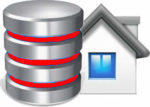Normally you could use a simple “rm” command in Unix/Linux. But sometimes if the folder is very full of files you may get the error: “Argument list too long” In which case you could use the “find” command instead: find
Plesk Upgrade 18.0.37 Fails with Grafana No More Mirrors Error
When upgrading my Plesk to 18.0.37 it would not complete as there was a Grafana error as it could not find the location and tried several mirror locations. Failed to install {‘release’: ‘1centos.7.210707.1232’, ‘version’: ‘1.0.10’, ‘arch’: ‘x86_64’, ‘name’: ‘libaps’}: Number
Find the size of directories
If you want to find out in a readable format the directories beneath you on Unix/Linux then just run this command: du -sh */ Now you can get a total of the file sizes in a certain directory.
How to Solve IP address conflict on Unix or Windows
If you have an IP address conflict on your network system and you want to find out what hardware is taking that IP address you can use the command “nslookup”. nslookup is a useful command used in Windows and in
Delete files older than 30 days in Linux
Delete Files Older Than 30 Days This command will delete all files older than 30 days in system /opt/backup directory. find /opt/backup -type f -mtime +30 -exec rm -f {} \; If you want to just perform the action in
Exclude certain folders from a Zip command
If you need to exclude certain folders or subdirectories from a ZIP command on Linux / Unix then use this command: zip zip_path/my_zip_file.zip -FSr zip_this_dir/ -x exclude_this_directory_from_the_zip\*
Find Sizes of Linux Directories including Subdirectories
If you want to know the total size of your folders / directories and subdirectories under this path on Linux/Unix use this code: du -h your_dir_path -d 1
Man Command
Man To find out more about a command use ‘man’ and then the command name, entering this will give you a program manual for that particular command. E.g. $ man vim Once displayed to see the next page, press the
Which Command
The which command allows you to find the location of programs contained within any of the directories listed in the $PATH variable. $which vim /usr/bin/vim
Whereis Command
The whereis command allows you to search for the location of programs that are not contained within any of the directories listed in the $PATH variable. $ whereis ifconfig ifconfig: /sbin/ifconfig /usr/share/man/man8/ifconfig.8.gz
